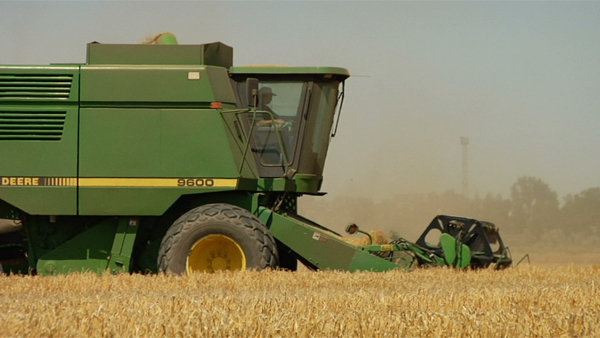
Agriculture
Agriculture is big business in Moore County. Dumas and Moore County boast a diverse ag industry, excellent transportation and unsurpassed community support. In fact, Dumas is one of the nation's leading producers of agricultural products, according to the Dumas Economic Development Corporation.
Farming is big business in Moore County. This is due to the area's soil composition and the mild climate, which make for a prime farming location.
Wheat is the most popular crop in Moore County followed by corn, cotton, milo, alfalfa, soybeans and sunflowers.
Though most of the crops are used for traditional purposes such as food, clothing and animal feed , but some are also used more innovatively, such as producing biofuel.
Cattle is also big in Moore County. In fact, Moore County ranks seventh in the state in terms of beef production, and it is in the top 15 in the nation. This, too, can be attributed to the mild climate and local crops.
Approximately 180,000 cattle are in ranches and feedlots throughout the county.
 Moore County is home to both the beef processing industry and the dairy industry. There are approximately 5,000 to 7,500 cattle processed daily and there are currently 35,000-plus dairy cows in the county.
Moore County is home to both the beef processing industry and the dairy industry. There are approximately 5,000 to 7,500 cattle processed daily and there are currently 35,000-plus dairy cows in the county.
Aquifer use in Moore County and many of the surrounding counties in the Texas Panhandle comes from the Ogallala aquifer. The Moore County Leadership Advisory Board (LAB), Moore County Extension Ag Committee , and the North Plains Groundwater Conservation District (NPG CD) give guidance to extension educational meetings, and demonstrations.
Irrigation and water use management are large issues facing farmers in Moore County. The county has an agricultural income of about $340 million from contributors such as feed yard cattle, dairies, corn, sorghum and cotton with all being reliant on irrigation. Moore County has about 250,000 irrigated acres, about 100,000 dry land crop acres and the remainder in native pasture.
Corn is the largest user of water of the crops raised in the Panhandle. Texas A&M AgriLife Extension Service is collaborating with the NPGCD to develop educational methods to conserve and more efficiently use groundwater.
Other topics identified by the Ag committee includes corn breeding technologies, National Corn Board funded programs and the groundwater future.









